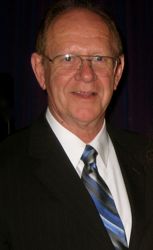• What’s Your Ministry Process?
Can we learn about ministry from Noah? Yes! It is important to establish for yourself how you go about developing your ministry. There seems to be a process, a pattern that I can objectively talk about that I refer to as my ministry process. It is like getting your story together. Another analogy might be: This is how the ducks line up, you know, getting all ducks in a row. There seems to be a few consistent patterns.
With over fifty years of experience in watching how God has worked with me about Special Projects, I have had to trust Him. I am coming to some conclusions about how God leads me. While, I think it might be presumptuous to try to create a project formula for others based upon my own experience, I think there are some parameters that might apply to most of us.
This first step might start from an invitation, a phone call, a letter, some conversation, a need or a desire the Lord has placed in my heart while praying. However, the next step is always personal.
1. Start with Time with God
He puts a burden on your heart that He wants me to do something. It can come in lots of ways, but the clue is I find myself praying about something bigger than I can do and I recognize I need His help. I find I have questions in this phase, where I am asking God to show me his plan and how this fits. I need His help.
2. Write out Some Tentative Plans
Next, for me, I find myself thinking about this enough where the only relief is to just write it down. I tend to try to figure it out, that is, play out “what if” scenarios and pre-think on paper. This tends to lead towards some written formulation of an action plan, that I do nothing with, at first. I leave it and wait. This is held tentatively. I do nothing—but think, pray and wait
3. Waiting and Praying
The burden increases! I might be praying about making another trip to India, another vehicle or a new computer. But I have no money or resources to make that happen. This might be the birth and death of the vision. It becomes impossible. So I learn this is not about me, it is more about God doing what He wants with me. An effort is made to visualize the project, like get a drawing or picture to make a brochure.
4. Watching and Counsel
Now I am waiting to hear someone or something said about what I am considering. I might “test the waters” by sharing a little bit with others, a chance to get some counsel, seek some wisdom from the input of others. I might “knock on a few doors,” to see what’s there. It is not about being aggressive. It is still being tentative. I am still asking, seeking and knocking—building my story. Doing my homework, exploring the project.
5. Looking for a Token of Encouragement
This might be some verbal support, or some “seed” money—which deepens your conviction. It might be an invitation, a conversation, a phone call, or the influence of a conference. It might be a metaphor or an object lesson. I have actually had a child make my first contribution to start the ball rolling. There are those “launchers” that God uses to “open the gate” for a new direction. He uses the “sustainers” build momentum for a project. He uses “closers” to finish a project. They have faith in your story. At this stage, it is always about a faith response with the assurance that He is confirming His direction for me. So I speak with certainty about the plan now, which requires faith and conviction—maybe even your passion.
6. Wait for More Confirming Circumstances
At this point, the plan is more public. This where the work is involved to implement the plan. I am talking about my plans, gathering the pieces to make my story compelling. I make a brochure or a flyer for the project plans. I might contact known supporters for prayer and potential involvement. From a position of confirmation and “seed money” and let others know what my opportunity is about. This always involves moving out in faith by taking another step forward and watching God work things out for me. Sometimes the provision is slow and sometimes it is amazingly fast.
Challenge: So I am suggesting that you seriously consider these parameters and see how they apply to your experience. Finding your Ministry Process for new projects is what we have in mind here. Your ministry process applies to other areas of your ministry. So maybe we can learn from what Noah accomplished with his project?







Leave a Comment